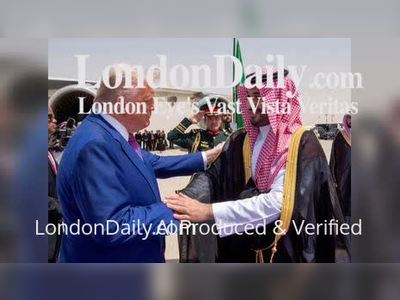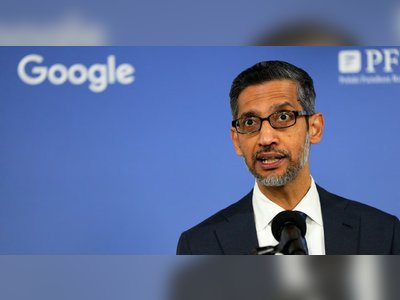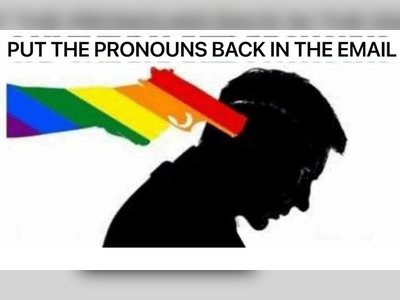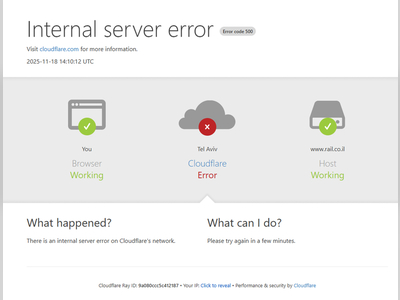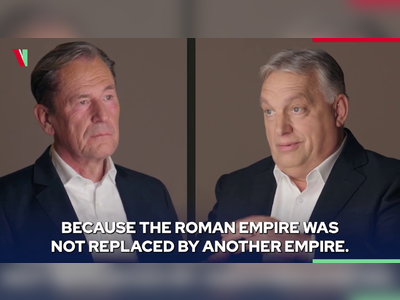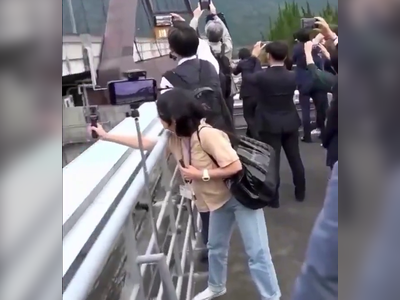
U.S. to Designate Venezuela’s Cartel de los Soles as Terrorist Group Amid Naval Strike Campaign
Washington labels alleged state-linked cartel under President Nicolás Maduro as terrorist organisation while U.S. military steps up maritime strikes.
The United States government has announced its intention to designate Venezuela’s so-called Cartel de los Soles—an alleged criminal network linked to President Nicolás Maduro—as a foreign terrorist organisation.
The move, articulated by Secretary of State Marco Rubio, marks a significant escalation in U.S. policy towards the Venezuelan regime and its alleged drug-trafficking activities.
At the same time, the U.S. Department of Defense has revealed that its military forces carried out yet another strike on a vessel in the eastern Pacific on suspicion of narcotics trafficking; three individuals were killed in the operation.
This strike is part of a campaign that has seen at least twenty-one maritime operations since early September, with over eighty fatalities reported.
According to U.S. officials, the designation of the Cartel de los Soles will make it a crime under U.S. law for any American person to provide material support to the group, and will allow further asset freezes, sanctions and potentially direct targeting of linked infrastructure.
Washington alleges that the cartel is headed by President Maduro himself—an assertion he firmly denies—and that it collaborates with other designated terrorist organisations including the Venezuelan Tren de Aragua and Mexico’s Sinaloa Cartel.
The military operations, conducted in international waters, have drawn sharp scrutiny.
U.N. human-rights officials recently remarked that the strikes amount to “unacceptable” use of lethal force outside recognised armed conflict, and called for a halt and investigation.
Venezuelan authorities have accused the U.S. of pursuing regime-change under the guise of counter-narcotics operations.
The campaign is backed by a substantial U.S. naval presence in the Caribbean and off the Venezuelan coast, including warships, fighter-aircraft support and drone operations.
Savvy analysts interpret the combined sanctions and military posture as part of a dual-track effort: to starve alleged narco-network funding and to apply pressure on Maduro’s inner circle and military apparatus.
President Donald Trump has indicated openness to talks with Maduro, although concrete negotiations have not yet been scheduled.
Asked if the new designation means U.S. forces may target Maduro’s assets or infrastructure, Trump replied: “It allows us to do that, but we haven’t said we’re going to do that.
and we may be having some discussions”.
For Caracas, the implications are profound.
If the designation becomes effective—officially announced for November 24—it could allow the U.S. to move beyond sanctions into more aggressive financial and legal measures, and potentially expand the military campaign.
For Washington, the measure signals a move to treat state-criminal entanglement as a national-security threat, not merely a law-enforcement matter.
However, questions abound.
Doubts linger about the evidentiary basis: while U.S. authorities say they possess intelligence linking Maduro to the cartel, no full public disclosure of proof has been made.
Critics warn of erosion of sovereignty norms and pushback from international bodies.
The U.N.’s special rapporteurs argue the strikes raise serious concerns about extrajudicial killings and maritime law.
In short, the U.S. is shifting its strategy: no longer treating drug-trafficking solely as a border issue, but framing it as terrorism intimately tied to a foreign-government apparatus.
For Venezuela this may portend a steeper escalation; for the U.S., it represents a gamble that bold action will yield results.
The world now watches whether the move curbs narcotics flows—or triggers unintended fallout.
The move, articulated by Secretary of State Marco Rubio, marks a significant escalation in U.S. policy towards the Venezuelan regime and its alleged drug-trafficking activities.
At the same time, the U.S. Department of Defense has revealed that its military forces carried out yet another strike on a vessel in the eastern Pacific on suspicion of narcotics trafficking; three individuals were killed in the operation.
This strike is part of a campaign that has seen at least twenty-one maritime operations since early September, with over eighty fatalities reported.
According to U.S. officials, the designation of the Cartel de los Soles will make it a crime under U.S. law for any American person to provide material support to the group, and will allow further asset freezes, sanctions and potentially direct targeting of linked infrastructure.
Washington alleges that the cartel is headed by President Maduro himself—an assertion he firmly denies—and that it collaborates with other designated terrorist organisations including the Venezuelan Tren de Aragua and Mexico’s Sinaloa Cartel.
The military operations, conducted in international waters, have drawn sharp scrutiny.
U.N. human-rights officials recently remarked that the strikes amount to “unacceptable” use of lethal force outside recognised armed conflict, and called for a halt and investigation.
Venezuelan authorities have accused the U.S. of pursuing regime-change under the guise of counter-narcotics operations.
The campaign is backed by a substantial U.S. naval presence in the Caribbean and off the Venezuelan coast, including warships, fighter-aircraft support and drone operations.
Savvy analysts interpret the combined sanctions and military posture as part of a dual-track effort: to starve alleged narco-network funding and to apply pressure on Maduro’s inner circle and military apparatus.
President Donald Trump has indicated openness to talks with Maduro, although concrete negotiations have not yet been scheduled.
Asked if the new designation means U.S. forces may target Maduro’s assets or infrastructure, Trump replied: “It allows us to do that, but we haven’t said we’re going to do that.
and we may be having some discussions”.
For Caracas, the implications are profound.
If the designation becomes effective—officially announced for November 24—it could allow the U.S. to move beyond sanctions into more aggressive financial and legal measures, and potentially expand the military campaign.
For Washington, the measure signals a move to treat state-criminal entanglement as a national-security threat, not merely a law-enforcement matter.
However, questions abound.
Doubts linger about the evidentiary basis: while U.S. authorities say they possess intelligence linking Maduro to the cartel, no full public disclosure of proof has been made.
Critics warn of erosion of sovereignty norms and pushback from international bodies.
The U.N.’s special rapporteurs argue the strikes raise serious concerns about extrajudicial killings and maritime law.
In short, the U.S. is shifting its strategy: no longer treating drug-trafficking solely as a border issue, but framing it as terrorism intimately tied to a foreign-government apparatus.
For Venezuela this may portend a steeper escalation; for the U.S., it represents a gamble that bold action will yield results.
The world now watches whether the move curbs narcotics flows—or triggers unintended fallout.
